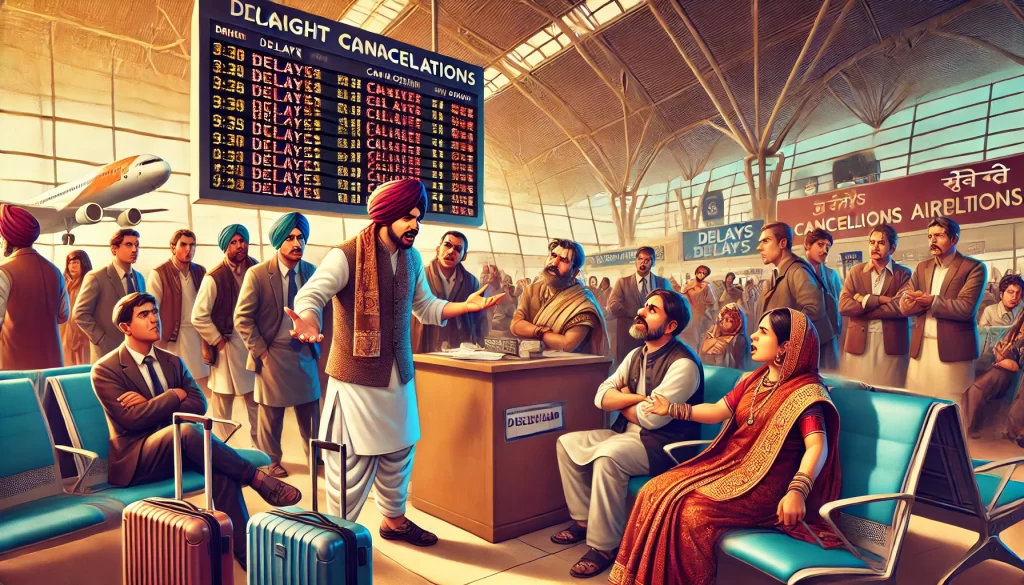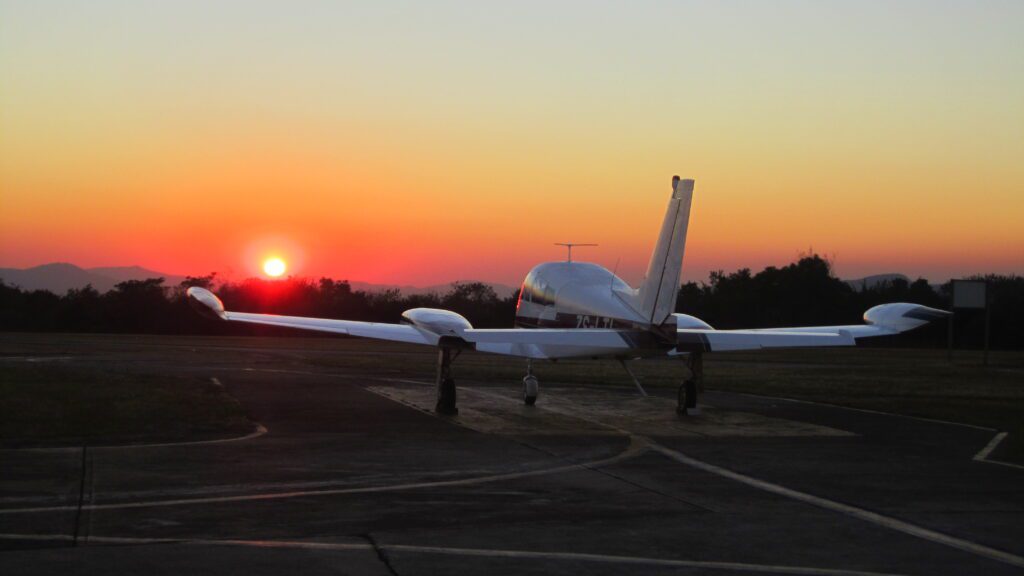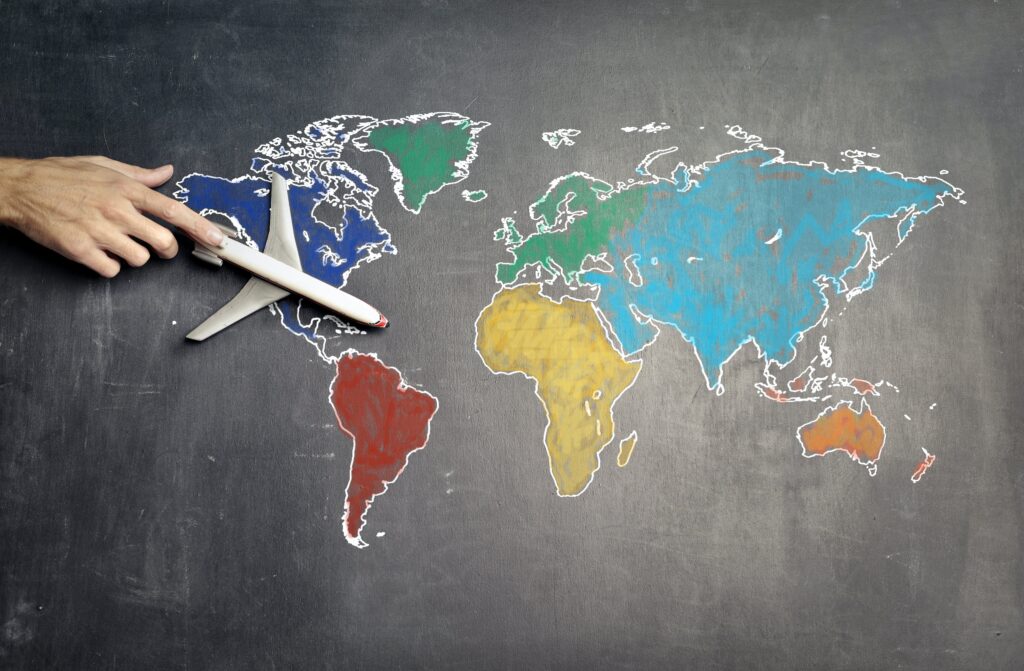In a world of increasing air travel, passengers face an increase in flight delay or cancellation. For Indian travelers, understanding their legal rights under the Directorate General of Civil Aviation (DGCA) regulations is essential. This article will walk you through what Indian laws say about flight disruptions, your entitlements as a passenger, and how to protect your interests.
- DGCA Guidelines for Flight Delays
- DGCA Guidelines for Cancelled Flights
- Compensation Framework Under Indian Laws
- Passenger Rights in Case of Delays
- Passenger Rights in Case of Flight Cancellations
- Role of Force Majeure in Delay or Cancellation
- Reasons For Delay or Cancellation
- What to Do If Your Flight Is Delayed?
- Steps to Take If Your Flight Is Cancelled
- Filing a Complaint Against Airlines
- Importance of Retaining Documentation
- What Not To Do !
- Are Indian Laws in Line With International Standards?
- Tips to Avoid Flight Disruption Hassles
- FAQs About Flight Delay or Cancellation
- Conclusion
DGCA Guidelines for Flight Delays
The DGCA defines a flight delay based on the waiting time before departure. For flights delayed by more than 2 hours, passengers are entitled to refreshments or meals. For delays exceeding 4 hours, airlines must offer an alternate flight or a full refund, depending on passenger preference.
Key points include:
-
- Notification: Airlines must inform passengers of delays as early as possible.
- Alternate Arrangements: If delays extend over 24 hours, accommodation and transportation must be provided.
DGCA Guidelines for Cancelled Flights
In the case of cancellations, the airline is obligated to:
-
- Notify passengers at least 2 weeks in advance.
- Offer an alternative flight or a full refund.
- Provide compensation if the cancellation occurs within two weeks to 24 hours before departure if an alternative flight is not arranged.
Compensation Framework Under Indian Laws
Indian laws mandate:
-
- Full ticket refunds for cancellations or significant delays.
- Financial compensation ranging between ₹5,000–₹20,000 for cancellations without sufficient notice.
- Meal and accommodation facilities for overnight delays caused by the airline.
Passenger Rights in Case of Delays
Under DGCA rules, passengers are entitled to:
-
- Free meals for delays over 2 hours.
- Re-routing or refunds for delays beyond 6 hours.
- Accommodation for extended delays.
Incase none of the above is provided then you are entitled to monetary compensation :
-
- 3 Hours – Rs 5000/-
- 4-12 Hours – Rs 10000/-
- Above 12 Hours – Rs 20000/-
Passenger Rights in Case of Flight Cancellations
Passengers facing cancellations can claim:
-
- Full ticket refunds.
- Alternate flights at no additional cost.
- Compensation when notified less than 24 hours before departure.
Role of Force Majeure in Delay or Cancellation
Force majeure events, like natural disasters or political unrest, exempt airlines from providing compensations but not from offering alternate arrangements.
Reasons For Delay or Cancellation
The most common reason being that the arrival aircraft did not land in time. Aircrafts are flying for almost 24 hours a day so naturally they are constantly moving between cities across the country and if for any reason it faces a delay at any point then that delay inevitably continues for the rest of the day.
On very rare events the airport itself may have some on going work which may prevent the movement of aircraft. Or a disruption in services like servers going down, that may cause delays with boarding.
Weather is another common reason. Typically these delays are caused during the monsoon and the winter seasons. Weather sometimes affects flights all around the year due to some localized weather phenomenon and changing weather patterns around the world. Fog is the biggest contributor towards delays during the winter months as we cannot take off when the visibility goes below a certain threshold, even though we may be able to land in zero visibility.
Sometimes the aircrafts suffer from technical problems, which at times are highly complex to fix. The engineers, technicians and pilots all work together to try and fix the problem but when the root cause of some of these become so complex that it may need spare parts or / and long hours to fix, that after examining and trying to fix, the airline may have to cancel the flight altogether or try and find a replacement aircraft.
Reasons can be many but under no circumstances do airlines willingly want to delay or cancel their flights. It only causes disruption throughout their whole network making countless changes and revenue loss in an already very competitive market.
As an example, while I was travelling as a passenger one time : the arrival aircraft was delayed by only a few minutes. Boarding had started and maybe half of the travelling passengers were on board when a “VIP movement” started. Due to safety reasons, the procedures at that airport state that all other aircraft and vehicle movement be stopped until the “VIP movement” is complete. This took almost 40 minutes. BUT by now the scheduled runway maintenance had started. So now we were stuck in the aircraft for another 2 hours because of our misfortune of the VIP movement.
What to Do If Your Flight Is Delayed?
Follow these steps:
-
- Contact the airline for real-time updates.
- Demand meals or accommodation as per DGCA guidelines.
- Retain all receipts for future claims.
Steps to Take If Your Flight Is Cancelled
-
- Request a written explanation of the cancellation.
- Choose between alternate flights or a refund.
- File a compensation claim if the airline fails to provide sufficient notice.
Filing a Complaint Against Airlines
If you face non-compliance by an airline:
-
- Register a complaint with the airline’s grievance officer.
- Escalate the issue to the Ministry of Civil Aviation on their online AirSewa Portal.
- Seek redressal through consumer forums if necessary.
Importance of Retaining Documentation
Keeping records of:
-
- Tickets and boarding passes.
- Receipts for meals, accommodation, or transport.
- Email or SMS communications with airlines ensures strong evidence for claims.
What Not To Do !
Firstly and the only thing not to do is to start a fight or argument with the ground staff or even worse the airline crew and pilots. Why?
In all probability the ground staff are not aware of the real reasons behind your flight delay or cancellation. Whatever information they receive from the airline management, is the information that they will pass on to you. They cannot do more than what they are already doing for you, as they have limited authority. So you will be better placed if you call the airline customer care and find the best possible way to get to your destination. Take your arguments to the ministry or civil aviation and lodge a complaint there.
If you are already on board and there’s a delay, please know there is a rule of Bureau of Civil Aviation Security (BCAS), that after boarding, no passenger is allowed to be deboarded unless there are safety concerns or if that flight has been cancelled. So the crew cannot help either. Yes I know this may not make sense to you but again you can take your arguments to the AirSewa portal.
Also remember that you can be escorted away by CISF or Airport Security for causing any disruption at the airport, aircraft or causing harm to any person. There could be criminal charges filed against you.
At this point you should also know of the common misconception that the pilots are delaying the flight on purpose so they can make some extra money. This really is far from the truth. Most times we are also stuck on the flight with you guys. We get paid only if we fly. We do not get a single penny if we sit on the ground for any length of the delay. We maintain a schedule given by the airline and our personal lives also revolve around this schedule. So any delay also affects our personal lives, and we would like nothing more than finishing our work and going home to our families.

Are Indian Laws in Line With International Standards?
While Indian aviation laws offer solid protections, they lack the comprehensive passenger rights seen in the European Union or the U.S. Indian regulators are working to bridge this gap.
Tips to Avoid Flight Disruption Hassles
-
- Opt for morning flights, which are less prone to delays.
- Use travel insurance to cover unforeseen costs.
- Double-check your airline’s cancellation policy.
FAQs About Flight Delay or Cancellation
Q1: What is the minimum compensation for flight cancellations?
The compensation starts at ₹5,000 and depends on the ticket price and notice period.
Q2: Can I get a refund if my flight is delayed for several hours?
Yes, for delays over 6 hours, you can opt for a full refund or an alternate flight.
Q3: What is the notice period airlines must follow for cancellations?
Airlines must notify passengers at least 2 weeks before the departure date.
Q4: Does force majeure exempt airlines from refund obligations?
No, airlines must still offer alternate flights or refunds, even under force majeure.
Q5: How do I file a complaint ?
Visit the AirSewa portal, provide details, and upload supporting documents.
Q6: Can I claim additional compensation for missed connections?
Yes, if the delay or cancellation caused by the airline leads to a missed connecting flight.
Conclusion
Understanding your rights as a passenger under Indian aviation laws can save you from unnecessary hassles. Whether it’s a delayed flight or an unexpected cancellation, the DGCA guidelines provide ample protection. Stay informed, stay cool headed, assert your rights, and ensure your journey remains smooth. Share this someone you know taking a flight soon.
These are of course just my opinions based on my experiences and gained knowledge. Differences in opinion are welcome.





An eye opener for me. Never knew all these facts earlier. Thank you for sharing the facts.